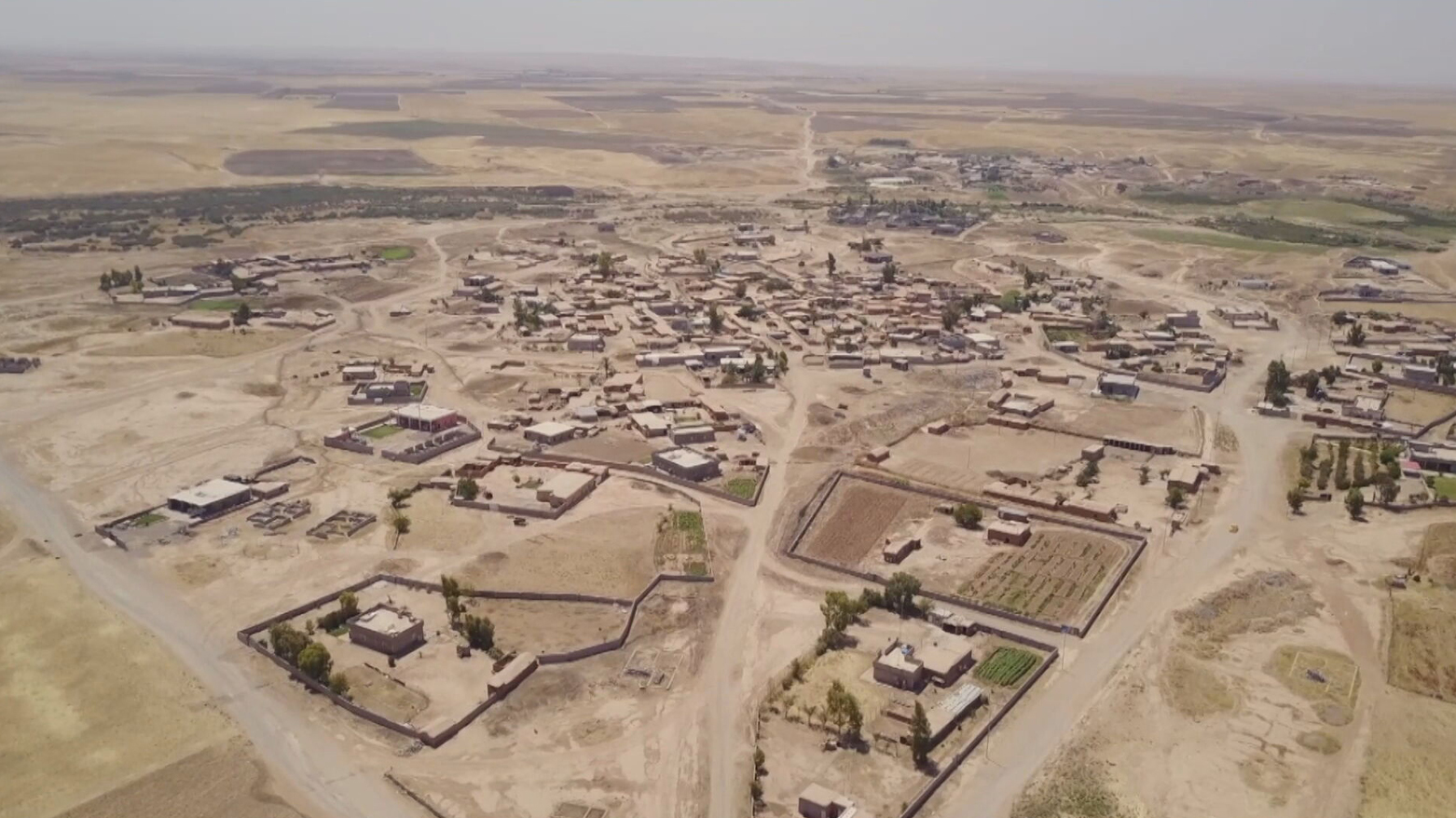Increased ISIS Presence Reported Along Kirkuk Border
ISIS activity is resurgent in Kirkuk, where militants exploit a security vacuum between Peshmerga and Iraqi army lines. Villagers report direct encounters and live in fear, while officials warn the gap must be filled by a joint force to prevent further instability.

ERBIL (Kurdistan24) – The specter of ISIS has returned to haunt the rural outskirts of Kirkuk, where militants are increasingly exploiting a dangerous security vacuum between the positions of the Kurdistan Region's Peshmerga and the Iraqi army. In the span of just one month, armed ISIS fighters have been sighted twice by local residents in the border area of the Shwan sub-district, creating a palpable sense of fear and anxiety and underscoring the fragile security situation in the Kurdistani territories outside the KRG's administrative control since the events of October 2017.
The recent sightings have been distressingly direct. According to reports from the area, the militants approached local people and demanded food, a bold move that signals a growing confidence and presence in the region.
For the Kurdish villagers, this resurgence has shattered their sense of security, compounding the numerous challenges they have faced since federal forces took control of the area. Their lives have been upended; by day, they report facing obstacles to carrying out their agricultural work, and by night, they are forced to become sentinels, vigilantly monitoring for the movements of ISIS.
Farhad Palkanayi, a local farmer, described the grim reality to Kurdistan24, confirming that the reports of ISIS activity are "very true." He painted a stark picture of life since Oct. 16, 2017, a period he said has been fraught with uncertainty and danger. "Our lives have changed since October 16th. Our ability to come and go has been only with God's help," Palkanayi stated.
The constant threat has forced the community to develop its own rudimentary warning systems. "We farmers frequently alert each other with lights," he explained. "In these alerts, we have our own secrets to tell each other that the situation is safe."
The security vacuum where ISIS appears to be thriving is a well-known and long-standing issue.
The Iraqi Parliament has previously identified a solution: filling the gap with a joint force composed of both the Peshmerga and the Iraqi army. However, this proposal has yet to gain the agreement of the Iraqi government.
Shakhawan Abdullah, the Deputy Speaker of the Iraqi Parliament, detailed the repeated efforts to address the problem. "Previously, we requested that a regiment of the 20th Brigade go to the other side of Prde to be able to fill that security vacuum," he said.
Abdullah also linked the current insecurity to broader strategic decisions, specifically the withdrawal of American forces from Iraq. He noted that the Kurdistan Regional Government's (KRG) position on the matter was clear from the outset, warning against a decision that could be a "major mistake and return Iraq to square one."
The Peshmerga forces have also repeatedly offered to move forward to control the entire border area and station their forces in the vacuum, but these offers, according to the report, have not been accepted by the Iraqi side. The consequences of this unresolved security gap are tangible; in the last six months alone, ISIS has carried out five separate attacks on Iraqi forces in the Kirkuk border region.
The resurgence of ISIS activity in Kirkuk is part of a larger pattern of instability and unresolved political issues plaguing the Kurdistani territories outside the KRG's administrative control.
Kurdish farmers in the Kirkuk area have been engaged in a persistent struggle to protect their ancestral lands from being seized by Arab settlers, who are often backed by state security forces and invoke defunct Ba'ath-era laws.
As previously reported by Kurdistan24, this ongoing conflict, rooted in Saddam Hussein's Arabization policies, has led to legal intimidation, arrest warrants, and restrictions on Kurdish farmers working their own land.
This is precisely the issue that Article 140 of the Iraqi Constitution was designed to resolve by reversing the demographic changes of the former regime. However, its implementation remains stalled, leaving communities vulnerable.
During a recent ceremony in Mosul, KRG Interior Minister Rebar Ahmed stressed that implementing Article 140 is "essential for justice, stability, and strengthening brotherhood among Iraq’s diverse ethnic and religious communities."
He also highlighted the critical role the Peshmerga played alongside federal forces in liberating the region from ISIS, a historical cooperation that stands in stark contrast to the current security gaps.
Similarly, the lack of full implementation of the Sinjar Agreement, a 2020 deal between Baghdad and Erbil aimed at stabilizing the Yezidi homeland, has left that region vulnerable and has prevented the return of hundreds of thousands of displaced people.
Minister Ahmed has called for the swift implementation of this agreement to allow the displaced to return "with respect and dignity." The failure to resolve these core political and security issues in places like Kirkuk and Sinjar creates the very conditions of instability and governance vacuums that extremist groups like ISIS are adept at exploiting.
The recent sightings of ISIS in Kirkuk are a grim reminder that the defeat of the group's territorial "caliphate" did not eradicate its ideology or its capacity to terrorize communities.
Until the underlying political disputes are addressed and a cohesive, coordinated security strategy is implemented by both Erbil and Baghdad to eliminate these dangerous vacuums, the farmers of Kirkuk will continue to live in a state of precariousness, forced to stand watch in the dark against a threat that should have been consigned to the past.
Kurdistan24's correspondent, Soran Kamaran, contributed to this report.
